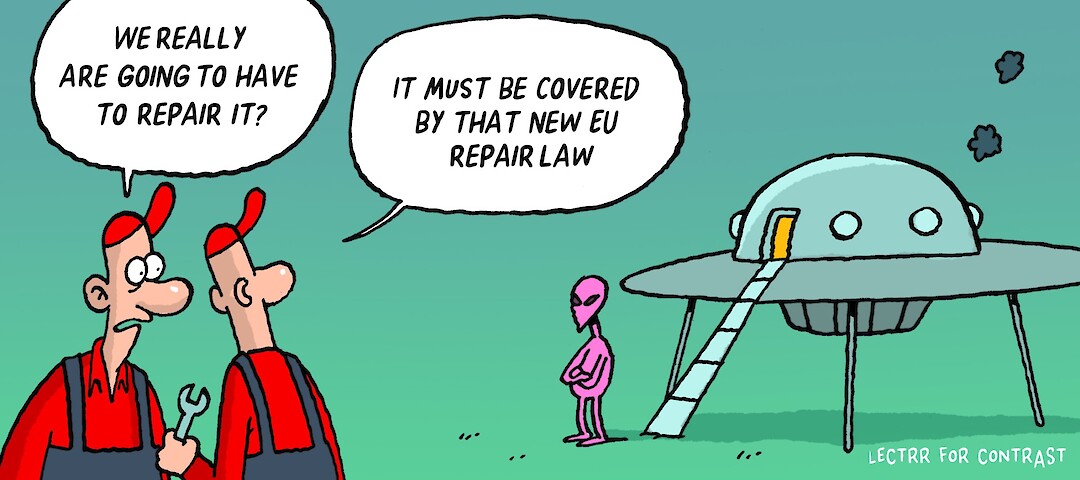In the Picture

Nuts and bolts: the new EU repair rules
November 2024Imagine ...
You work for an EU manufacturer of household electrical appliances. To your surprise, you receive a series of e-mails from a colleague in which consumers are asking your company to repair their appliances. This is completely unexpected. You only sell to distributors, not consumers, and it is not your intention to offer repair services to consumers. Moreover, the appliances are often outside the legal guarantee period. You are unsure how to deal with these consumer requests and consult your legal advisers.
A brief clarification.
On 13 June 2024, the European Parliament and the Council adopted a directive aimed at promoting the repair of goods. The Right to Repair Directive falls within the Green Deal and the goal of extending the lifespan of consumer goods. Indeed, an estimated 35 million tonnes of repairable goods are thrown away as waste in the EU every year.
Member states must transpose the directive into national law and apply it from 31 July 2026.
It grants consumers a new right, namely the right to have consumer goods such as washing machines, electronic displays, vacuum cleaners and mobile phones repaired more easily, cheaply and quickly.
The directive therefore entails new obligations for manufacturers. For example, these will have the following repair and information obligations:
- At the request of consumers, manufacturers must repair goods if possible. The repair can also be outsourced. The repair must be done free of charge or at a reasonable price. Moreover, it must be done within a reasonable time.
- Consumers must have access to indicative prices for the usual repair of goods through a website. The website must be freely accessible.
- Manufacturers may not refuse to carry out a repair because a previous repair of a good was not carried out by them.
- Manufacturers must make information about their repair services available, for example through a website, digital product passport or at the point of sale.
The EU manufacturer in our example will thus have to provide for the repair of its goods, either itself or through a third party to which it outsources the repair. The manufacturer will also have to inform consumers about these repair services.
The repair and information obligations apply to authorised representatives, importers or distributors when the manufacturer is not established in the EU.
The directive additionally amends the rules relating to the legal guarantee, namely Directive (EU) 2019/771. The following new rules should encourage consumers to opt for the repair of goods within the legal guarantee period:
- The statutory two-year guarantee period is extended by 12 months if a good is repaired.
- Sellers must inform consumers about their right to choose between repair and replacement under the legal guarantee, and about the possible extension of the legal guarantee period.
Member States may provide for a longer extension of the legal guarantee period.
Concretely.
- The EU adopted a directive on 13 June 2024 that aims to promote the repair of goods.
- It includes repair and information obligations that will apply primarily to manufacturers of certain household goods, such as washing machines, electronic displays, vacuum cleaners and mobile phones.
- It provides for an extension of the legal guarantee period if a consumer opts for repair of goods under guarantee. Sellers must inform consumers about this.
- Member states must transpose the directive into national law by 31 July 2026. Those rules may be stricter rules.
Want to know more?
The Right to Repair Directive can be found here.
Please consult our website or contact one of our team members if you have questions or require more information:













